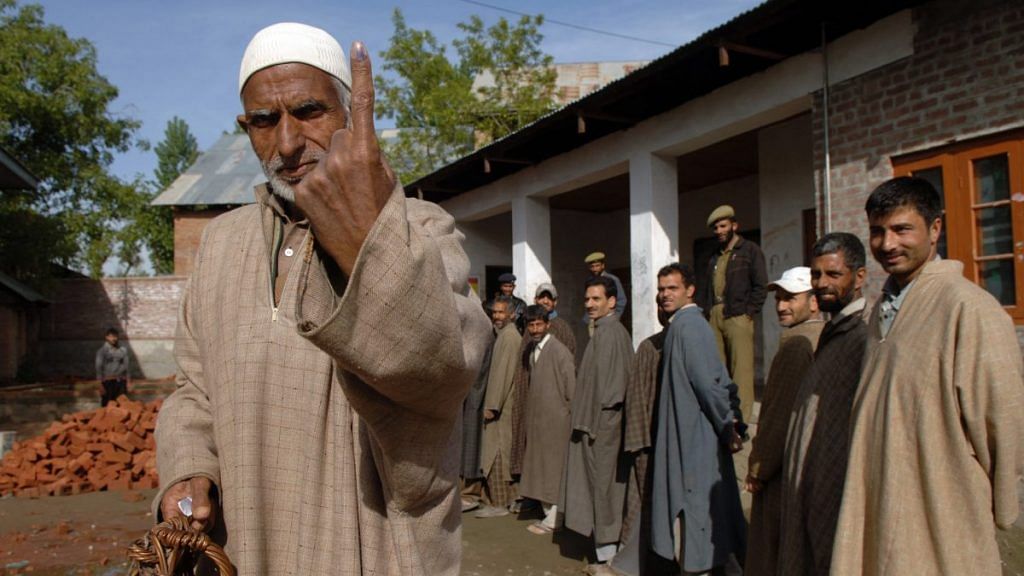New Delhi: The Election Commission of India will start the process of delimitation of the constituencies in Jammu and Kashmir once the bill to bifurcate the state into two Union Territories is passed, ThePrint has learnt.
“It looks likely that the delimitation exercise for the state will have to be carried out, and according to the bill, the EC will have to carry out the exercise after a Delimitation Commission is appointed,” an EC official said.
According to the provisions of the Jammu and Kashmir Reorganisation Bill, 2019, introduced in the Rajya Sabha by Union Home Minister Amit Shah Monday, “…the number of seats in the Legislative Assembly of Union Territory of Jammu and Kashmir shall be increased from 107 to 114,” and the delimitation exercise “may be determined by the Election Commission”.
Significance of delimitation in J&K
Delimitation refers to the demarcation of boundaries of parliamentary or assembly constituencies. Ordinarily, the process is carried out every few years to ensure that each constituency has approximately an equal number of voters. Therefore, the exercise is carried out after every Census. Additionally, the exercise is carried out in case of a division of a state into two or more constituent states or UTs.
In Jammu and Kashmir, delimitation has been a controversial issue since it is believed that after the exercise, the number of seats in the Jammu region would increase, and that would lead to more political gains for the BJP at the cost of regional parties.
According to the provisions of the bill, the EC will carry out the exercise along with four “associate members” as specified by the central government, “who are the members of the legislative assembly of the Union Territory of Jammu and Kashmir or four members of the House of the People representing the Union Territory of Jammu and Kashmir”.
Delimitation would be carried out on the basis of the 2011 Census data.
Also read: Explained: This is what Modi govt has done to scrap Article 370, 35A in Jammu & Kashmir
Reservation for SC/STs
The bill also states that there would have to be reservation for the Scheduled Castes and Scheduled Tribes in the legislative assembly of the new UT, as per the provisions of the Constitution.
“Constituencies in which seats are reserved for the Scheduled Castes and the Scheduled Tribes shall, as far as practicable, be located in areas where the proportion of their population to the total population is the largest,” it states.
The number of seats reserved for SC/STs will be in proportion to the SC/ST population in the UT to the total population, it adds.
So far, J&K had no reservation in the legislative assembly due to the exceptions granted to it under Article 370, which the government has moved to scrap.
‘Polls could be delayed’
While it was speculated that elections in Jammu and Kashmir would be held in October along with polls in Haryana, Maharashtra and Jharkhand, the delimitation exercise could delay them even further.
“Delimitation could easily take more than a year,” said S.K. Mendiratta, former legal adviser to the EC. “So it is possible that polls will be delayed.”
However, if the government so desires, it could carry out polls with the existing constituencies, and carry out the delimitation process subsequently, he added.
This report has been updated to reflect that delimitation is set to be carried out according to 2011 Census data, not 2001. The error is regretted.
